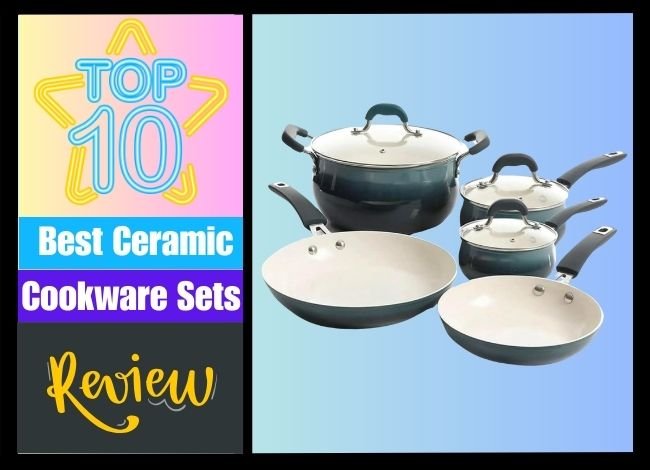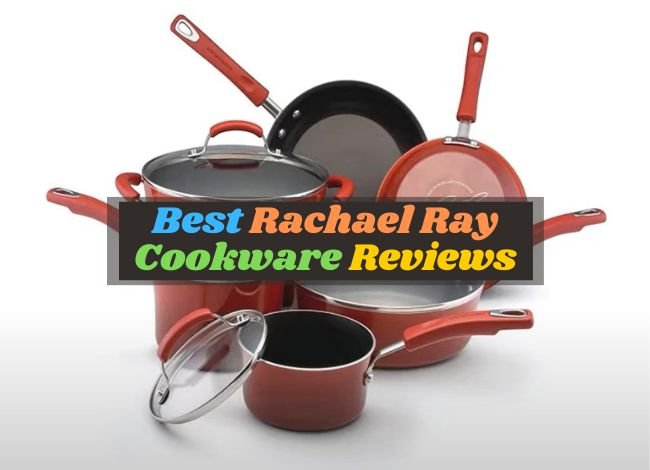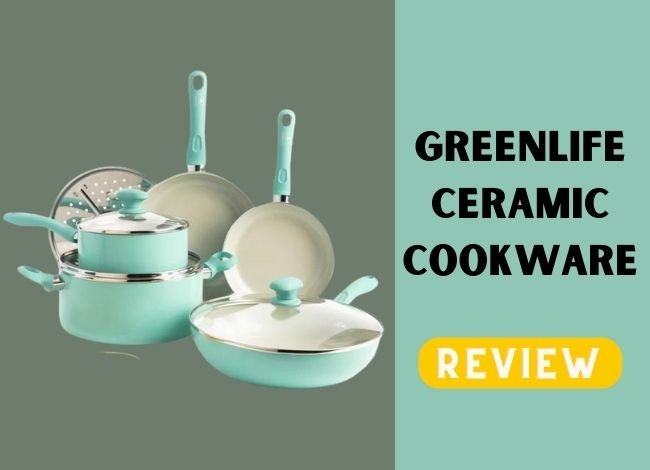Last Updated on February 12, 2024
In the culinary world, choosing the right cookware can significantly influence your cooking efficiency, flavor, and overall kitchen experience. The Dutch oven and the pressure cooker are two popular options that have stood the test of time. Each comes with its unique set of benefits and drawbacks, catering to different cooking needs and preferences.
Whether you’re a seasoned chef or a home cooking enthusiast, understanding the nuances of Dutch ovens and pressure cookers can help you make an informed decision. This comprehensive guide will explore the workings, pros, and cons of Dutch ovens and pressure cookers, aiming to assist you in determining which is right for your culinary adventures.
Comparison Chart: Dutch Ovens vs. Pressure Cookers
| Feature | Dutch Oven | Pressure Cooker |
|---|---|---|
| Material | Cast Iron/Enameled Cast Iron | Stainless Steel/Aluminum |
| Cooking Method | Slow Cooking, Baking, Braising, Frying | High-Pressure Steam Cooking |
| Time Efficiency | Slow Cooking Process | Fast Cooking Times |
| Versatility | High (various cooking methods) | Moderate (mainly for boiling, steaming) |
| Flavor Development | Excellent (through slow cooking) | Good (retains flavors and nutrients) |
| Energy Efficiency | Moderate | High |
| Ease of Use | Easy (no special knowledge required) | Moderate (requires understanding of pressure settings) |
| Maintenance | Requires seasoning if not enameled | Generally easy to clean; parts may need regular checks |
What Are Dutch Ovens and How Do They Work?
A Dutch oven is a heavy-duty pot that is perfect for making stews, soups, and braises. Traditionally made of cast iron, modern Dutch ovens come in various materials, including cast aluminum and ceramic. The thick walls and tight-fitting lid of a Dutch oven allow for even heat distribution, making it ideal for slow cooking, baking, frying, and more. The cookware can be used on the stovetop and in the oven, offering versatility in cooking methods.
On the other hand, a pressure cooker is a sealed pot with a valve that controls the steam pressure inside. By trapping steam, it raises the boiling point of water, allowing food to cook faster under high pressure. This method is excellent for quickly cooking tough cuts of meat, legumes, and dense vegetables, preserving nutrients and flavors that might be lost through longer cooking processes.
Pros of Dutch Ovens
- Versatility: Dutch ovens can be used for a myriad of cooking methods, including baking, frying, roasting, and stewing, making it an all-in-one pot for various recipes.
- Even Heat Distribution: The heavy cast iron construction ensures heat is evenly distributed and retained, ideal for slow-cooking recipes that require consistent temperatures.
- Durability: With proper care, a Dutch oven can last for generations, making it a worthwhile investment for any kitchen.
- Flavor Enhancement: The slow-cooking process in a Dutch oven helps develop deep, complex flavors, perfect for soups, stews, and braised dishes.
Cons of Dutch Ovens
- Weight: Dutch ovens are heavy, making handling and cleaning them somewhat challenging, especially for larger models.
- Maintenance: Cast iron Dutch ovens require seasoning to maintain their non-stick surface and prevent rust, which some users might see as an extra step.
- Heat Adjustment: Because they retain heat so well, adjusting temperatures quickly can be difficult, requiring a bit of a learning curve to master.
- Cost: High-quality Dutch ovens can be expensive, though their durability can justify the investment over time.
What Are Pressure Cookers and How Do They Work?
Pressure cookers are innovative kitchen appliances designed to cook food quickly under high pressure. The core principle behind a pressure cooker is straightforward: it seals in steam to create a high-pressure environment within the pot. This process significantly increases the boiling point of water and other cooking liquids, causing the temperature to rise above the normal boiling point of water (100°C or 212°F), which speeds up the cooking process.
The mechanics involve a tightly sealed pot equipped with a valve that controls the pressure inside. The liquid inside the pot heats up, generating steam, which cannot escape due to the sealed lid. This trapped steam increases the internal pressure. The high pressure inside the pot has two main effects: it raises the boiling point of water and forces moisture into the food, which can dramatically reduce cooking times and help tenderize tough cuts of meat.
Pressure cookers come in two main types: stovetop and electric. Stovetop models are manual, offering more control over the cooking process but requiring more attention to ensure safety. Electric pressure cookers, on the other hand, are automated and come with multiple functions besides pressure cooking, such as slow cooking, rice cooking, and even yogurt making, making them versatile kitchen tools.
The safety features of modern pressure cookers include locking lids, pressure release valves, and safety valves to ensure that they are much safer to use than older models. These improvements have helped to mitigate the risks previously associated with pressure cooking.
Pros of Pressure Cookers
- Time Efficiency: One of the most significant advantages of using a pressure cooker is the reduction in cooking time. Meals that typically take hours to prepare can be cooked in a fraction of the time, which is ideal for busy lifestyles.
- Energy Efficiency: Pressure cooking is more energy-efficient than traditional cooking methods. The sealed environment allows the cooker to reach the desired temperature quicker and maintain cooking temperatures with less energy.
- Nutrient Retention: Cooking under high pressure and in less liquid means that more vitamins and minerals are retained compared to traditional boiling or steaming, where nutrients can be lost in the cooking water.
- Versatility: Modern pressure cookers offer multiple functions, from baking to steaming, making them versatile additions to the kitchen.
- Flavor Enhancement: The sealed environment of a pressure cooker traps flavors, leading to richer and more intense tastes. The quick cooking process also helps retain the ingredients’ natural flavors.
Cons of Pressure Cookers
-
- Learning Curve: For beginners, pressure cooking can come with a steep learning curve. Understanding how to use and adjust the settings for different dishes properly may take some time and experimentation.
- Initial Cost: High-quality pressure cookers can be an investment. While there are affordable options, the more versatile and durable models have a higher price tag.
- Maintenance: Pressure cooker gaskets and valves require regular checks and replacements to ensure safe and efficient operation.
- Less Forgiving: The quick cooking process makes less room for error. Overcooking can happen swiftly, potentially leading to mushy or overly tender dishes.
- Safety Concerns: Although modern pressure cookers have multiple safety features, there’s still a risk of burns from steam or hot liquid if the cooker is improperly used or opened before it’s fully depressurized.
Which One Should You Choose?
When deciding between a Dutch oven and a pressure cooker, your choice largely depends on your cooking habits, preferences, and the types of dishes you enjoy preparing. A Dutch oven, typically made from cast iron or enameled cast iron, excels at slow cooking, braising, baking, and frying. It distributes heat evenly and retains heat well, making it ideal for recipes that benefit from a slow, steady cook. Moreover, its versatility extends beyond the stove, as it can go into an oven without issue.
On the other hand, a pressure cooker, which can be either stovetop or electric, is designed to cook food quickly under high pressure. This reduces cooking times dramatically, making it an excellent choice for busy individuals who want to prepare healthy meals in a fraction of the time it would take with traditional methods. Pressure cookers are perfect for cooking tough cuts of meat, beans, and legumes, making them tender and flavorful quickly.
Consider the following factors when choosing between the two:
- Cooking Time: A pressure cooker is your best bet if you need to make meals quickly.
- Versatility: Dutch ovens offer more flexibility in cooking techniques, including baking, which pressure cookers can’t do.
- Flavor Development: Slow cooking in a Dutch oven can deeply develop flavors.
- Ease of Use: Pressure cookers may have a steeper learning curve due to the need to understand pressure settings.
- Energy Efficiency: Pressure cookers are more energy-efficient, as they cook food faster.
Conclusion – Dutch Ovens vs Pressure Cookers
Both Dutch ovens and pressure cookers offer unique benefits that can complement any kitchen. The choice between them should be based on your cooking style, the time you have to prepare meals, and the types of dishes you prefer. A Dutch oven is perfect for those who enjoy the process of cooking and the complex flavors developed through slow cooking. A pressure cooker suits those needing efficiency and speed without sacrificing the nutritional value of their food. In the end, you may find that having both allows you the flexibility to meet any culinary challenge.
Frequently Asked Questions (FAQs)
- Can you bake bread in a Dutch oven?
- Yes, a Dutch oven can bake bread perfectly by creating an ideal steamy environment that mimics a professional oven.
- Is a pressure cooker healthier than other cooking methods?
- Pressure cooking is considered healthy as it cooks quickly, reducing nutrient loss compared to some prolonged cooking methods.
- Can a pressure cooker explode?
- Modern pressure cookers have multiple safety features, making them very safe to use when instructions are followed.
- What can’t you cook in a Dutch oven?
- It’s advised not to cook very acidic foods like tomato sauces in uncoated cast iron Dutch ovens as they can react with the metal.
- How do you clean a Dutch oven?
- Enameled Dutch ovens can be cleaned with soapy water, while cast iron versions may need special care like oil seasoning after cleaning.
- Can you leave food in a Dutch oven overnight?
- It’s not recommended due to food safety concerns, especially with perishable foods.
- Is it worth buying an electric pressure cooker?
- An electric pressure cooker can be a valuable kitchen appliance for those seeking convenience and speed.
- What’s the primary difference between stovetop and electric pressure cookers?
- Stovetop pressure cookers cook at a higher pressure and can cook food faster, while electric models offer more convenience and safety features but usually cook at a lower pressure.
- Can I use metal utensils with a Dutch oven?
- It’s best to avoid metal utensils with enameled Dutch ovens to prevent chipping. For bare cast iron, metal is generally okay.
- How long do pressure cookers last?
- Proper maintenance ensures that a high-quality pressure cooker can last many years, even decades.




